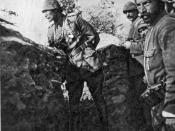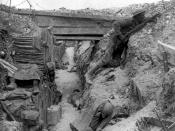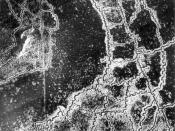During the late 1800's and early 1900's most European nations were experiencing dramatic changes, socially and economically. Populations were rising and falling, social classes were shifting, and new political leaders were eager to make their mark on the world. As these changes were forced inevitably upon the nations, the balance of European powers became altered. Westernized countries rapidly grew more powerful then unindustrialized countries, leaving these countries with weaker armies open to attack. The changes had effects on nationalism, militarism, and imperialism within the societies and governments of the troubled countries. Many other factors contributed to the progression leading up to the war, but these movements, coupled with the system of tangled alliances the countries had developed with each other, were the main causes of The Great War. However, little could be done to predict the enormous impact and length of the First World War and few were prepared. By the end of 1918, stalemate and death by the millions was very common.
Most viewed it as a pointless and unaccomplished struggle, which only resulted in death and destruction. The Western Front, located in northern France and the northwest portions of Germany was one of the most significant reasons that the war was known for such ruin and utter human misery. This area, saturated with merciless trench warfare and death is one of the leading reasons that the First World War was viewed by millions as hopeless and stands to have little accomplishment to the present world to this day.
The alliances formed prewar and during the war dictated the actions of each country. Ironically, alliances were formed in order to keep peace within the European countries. However, with each country connected to another in some way, any small dispute between enemies could have a "domino effect" on each of...



Wow......
I can not stress enough about the sheer agreement I have about this particular essay. Not only does it dig deep into the roots of WWI, it also moves like a Howard Zinn novel in the fact that it goes beyond conform knowledge. Instead, it moves profoundly with the emphasis WWI truely had. Overall, this essay covered all aspects of the important events in WWI. Good JOb!
3 out of 3 people found this comment useful.